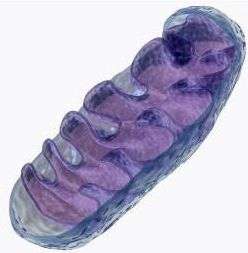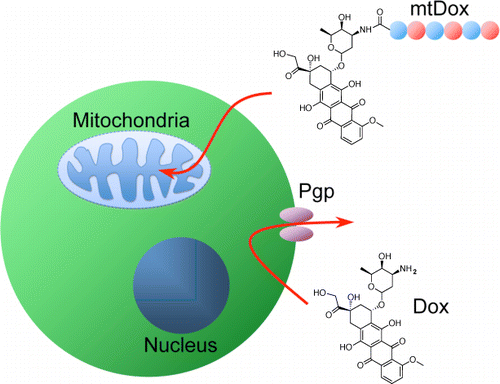Overcoming resistance to anti-cancer drugs by targeting cell 'powerhouses'

Re-routing anti-cancer drugs to the "power plants" that make energy to keep cells alive is a promising but long-neglected approach to preventing emergence of the drug-resistant forms of cancer—source of a serious medical problem, scientists are reporting. That's the conclusion of a new study published in the journal ACS Chemical Biology.
Shana Kelley and colleagues explain that doxorubicin and other common forms of chemotherapy work by damaging the genes inside the nucleus of cancer cells. Cancer cells divide and multiply faster than surrounding normal cells, making copies of their genes. The drugs disrupt that process. But cancer cells eventually adapt, developing structures that pump out nucleus-attacking drugs before they can work. Kelley's team explored the effects of targeting doxorubicin to the mitochondria, the energy-producing structures in cells that also contain genes.

They describe a re-targeting approach that involved mating doxorubicin with a small piece of protein that made the drug travel to mitochondria instead of the nucleus. The combo killed cancer cells, even those that had developed pumps. Such an approach could work with a whole family of anti-cancer drugs that target the nucleus, the scientists indicate.
More information: "Targeted Delivery of Doxorubicin to Mitochondria," ACS Chemical Biology. DOI: 10.1021/cb400095v
Abstract
Several families of highly effective anticancer drugs are selectively toxic to cancer cells because they disrupt nucleic acid synthesis in the nucleus. Much less is known, however, about whether interfering with nucleic acid synthesis in the mitochondria would have significant cellular effects. In this study, we explore this with a mitochondrially targeted form of the anticancer drug doxorubicin, which inhibits DNA topoisomerase II, an enzyme that is both in mitochondria and nuclei of human cells. When doxorubicin is attached to a peptide that targets mitochondria, it exhibits significant toxicity. However, when challenged with a cell line that overexpresses a common efflux pump, it does not exhibit the reduced activity of the nuclear-localized parent drug and resists being removed from the cell. These results indicate that targeting drugs to the mitochondria provides a means to limit drug efflux and provide evidence that a mitochondrially targeted DNA topoisomerase poison is active within the organelle.
Journal information: ACS Chemical Biology
Provided by American Chemical Society















